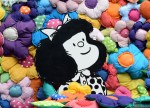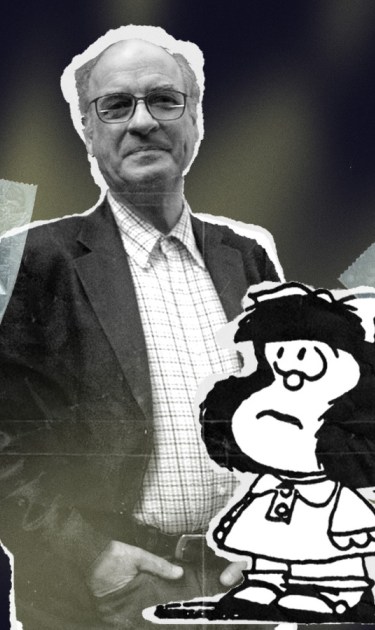Latin America’s most critical-thinking little girl and her generations of fans are mourning the passing of the author who brought her to life. Writer and cartoonist Joaquín Salvador Lavado Tejón, better known by the pen name “Quino,” passed away this week at the age of 88.
Born in Mendoza, Argentina to an immigrant family from Spain, Quino has famously shared his love for cartoons and illustrations, which began the day his uncle Joaquin doodled with him. While he was only three years old at the time, Quino would continue to draw for the rest of his life, touching the lives of millions through his commentary and characters.
The Argentine is best known for his comic strip Mafalda, which followed the everyday life and musings of a curious, 6-year-old girl who had a lot to say about current events. The strip made its debut in 1964 in Buenos Aires’ Primera Plana magazine, a weekly focused on arts and culture and later moved to the newspaper El Mundo. Running six times a week alongside news from Latin America and around the world, the daily periodical is where the title character began to speak about current events.
While Quino intended for his syndicated strip to reflect the traditional lives of middle-class Argentines, Mafalda managed to bring progressive commentary to the masses through her interactions with her family. The young protagonist often questions her mother’s role as a housewife and worries about her dad’s excessive hours working as an insurance salesman. All during a time in which women in Latin America demanded equal rights to men and western capitalism began to come under question.

With a supporting cast of more kids with big personalities and wisdom beyond their years, the comic is often compared to Charles Schultz’s “Peanuts” for the way in which it characterized children as intelligent beings. But where Charlie Brown and the gang often had dialogue based on existential or personal issues, Mafalda and friends spoke more directly and broadly about the real world. She often voiced her desire for world peace and would ask her parents about the rise of Chinese communism. Her pet turtle is named Burocracia (Bureaucracy). Her friend Libertad (Liberty), the more radical voice in the comic, often got in trouble for sharing her political views, as the moderate adults and teachers reading at home allegorically disapproved.
Mafalda ended its run as a daily feature in 1973 but remained popular due to its continued publication around the Spanish-speaking world and through translations into compilation books in 26 languages, including English, Chinese, French and Italian. Quino occasionally penned new Mafalda drawings for UNICEF’s campaigns in favor of the rights of children and vaccination awareness. He continued to draw satire and social commentary cartoons until his retirement in 2006.
Contemporaries such as Mexican satirist Eduardo Humberto del Río and Italian philosopher Umberto Eco have professed their admiration for Quino’s work, especially a love for Mafalda comics during their lifetimes. Eco even took up the personal task of writing the preface introductions to the localized compilation tomes published in Italy. “Mafalda is a hero of our time. And as our children are about to become, by our choice, many Mafaldas, it would be wise to treat her with the respect a real person deserves,” Eco wrote.

Ultimately, Quino’s impact cannot be measured. Millions have laughed and reflected along with his creations. His humor opened the door for real conversations on contemporary life and world events for many. Above all, Mafalda is a reminder to never lose our childlike sense of curiosity and to speak our minds on important issues.




